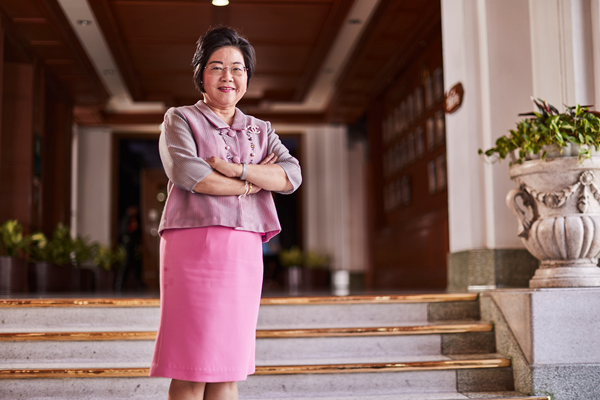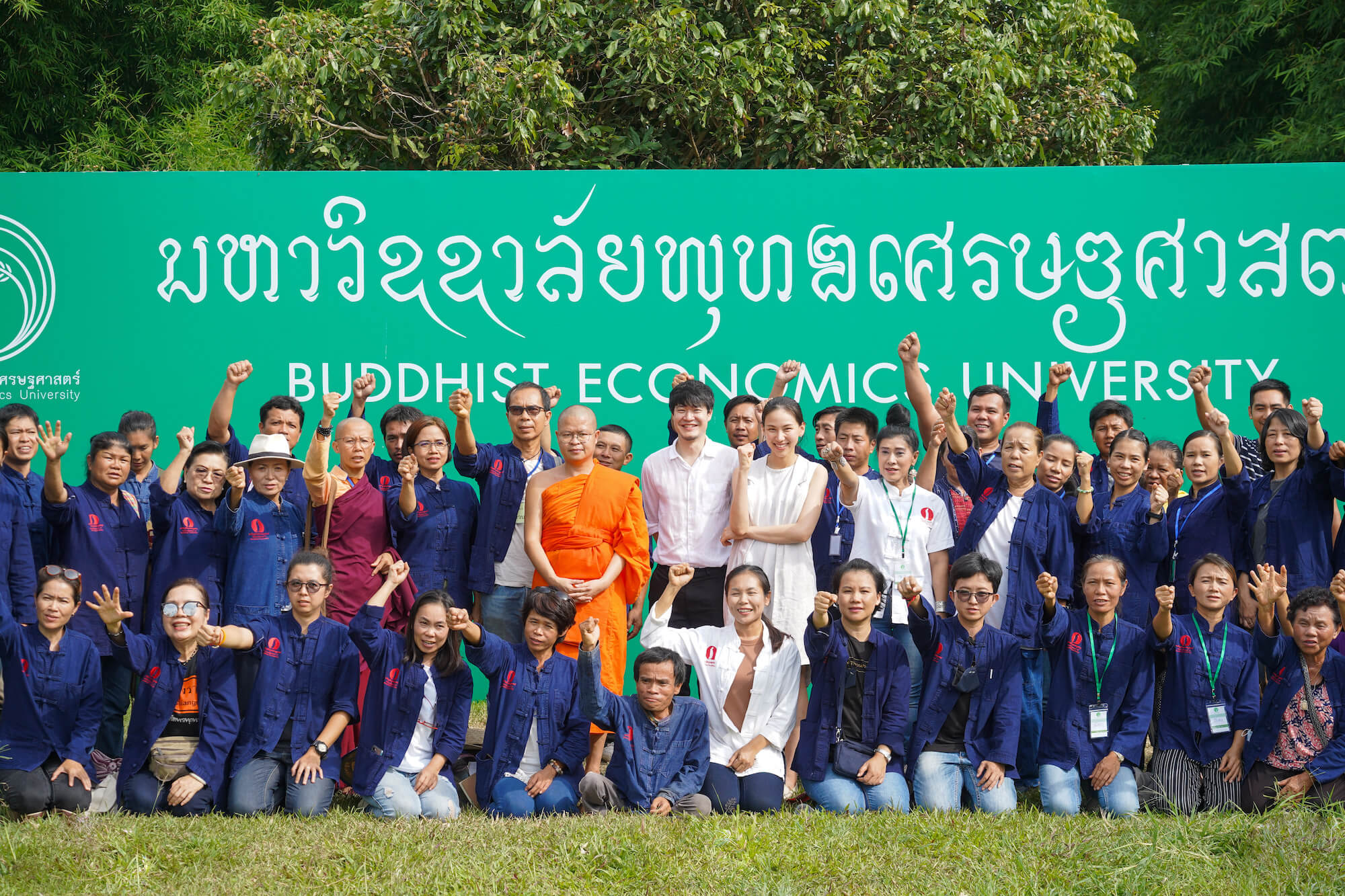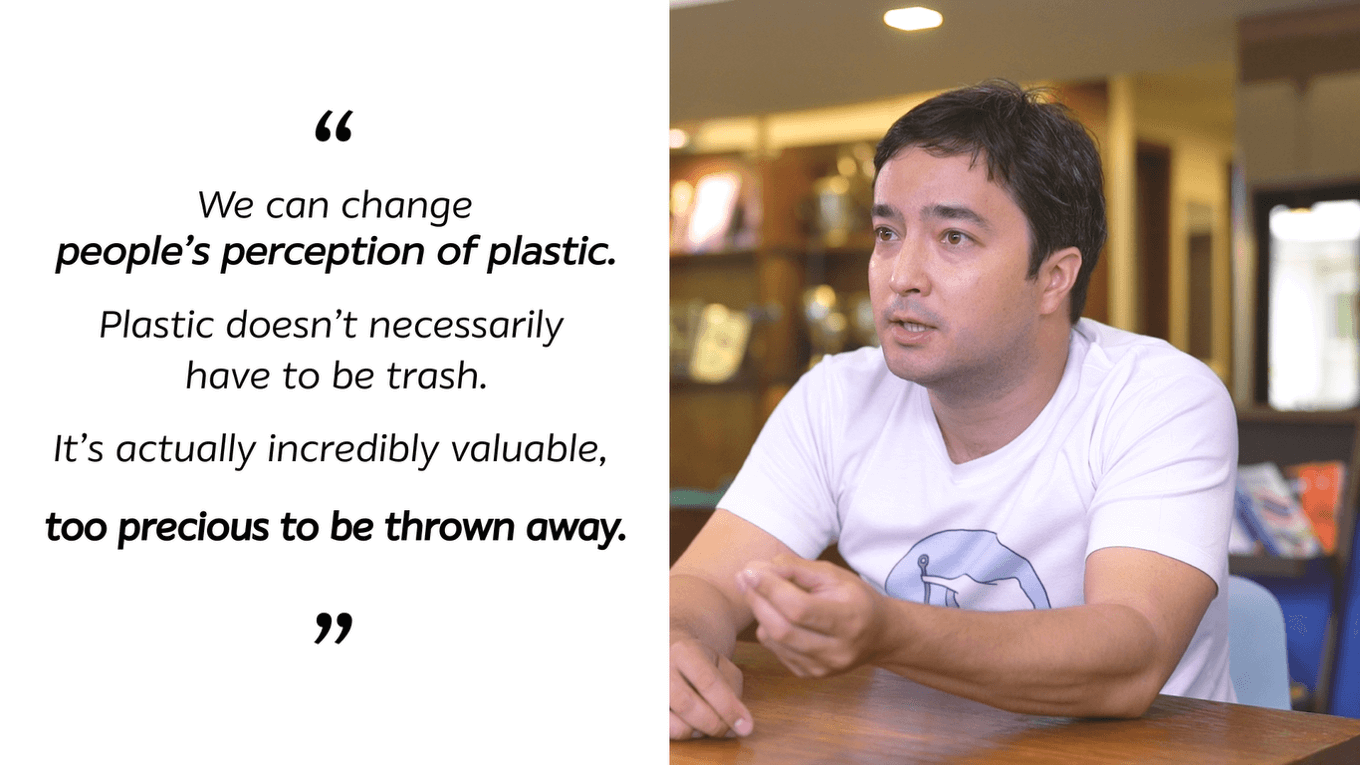While the term “circular economy” might be unfamiliar to many Thais, we are already exposed to the concept through a constellation of ongoing eco-friendly initiatives, such as waste sorting and waste reduction campaign, undertaken by both the government and the civil sector to foster an effective and accessible economic system for sustainability.
All Around Plastics sat down with Suwanna Jungrungrueng, Former Deputy Permanent Secretary for Bangkok Metropolitan Administration and Head of the City Planning, Environment, and Finance Cluster, who discussed with us the importance of circular economy, Bangkok’s role as the maker of the environmental policy for social sustainability, and the collaboration between Bangkok and the private sector.
Your View on Circular Economy
In my experience over 30 years in an environmental career, a circular economy is one of the most beneficial concepts for resources that still cannot be renewed by current technology. It will play an integral role in promoting resource efficiency and preserving resources for posterity.

The Role of the Governmental Sector and BMA Related to Circular Economy Policies
The government is responsible for formulating regulations and laws to accommodate the creation of a circular economy. Contributing to this effort, the governor of Bangkok has also introduced policies dictating every organization under BMA to implement projects relevant to resource recovery and efficiency. For instance, the Department of Health has stopped giving out plastic bags at its dispensaries and encouraged patients to bring their own tote bags. BMA also strives to cultivate eco-consciousness in the citizens through educational institutions and learning centers, such as at On Nut Garbage Disposal Plant, which demonstrates the significant role of waste sorting on efficient resource retrieval.
As a result of these initiatives, Bangkok’s growth of waste volume has slowed down compared to 30 years ago to only about one percent annually. With the inexorable pace of urbanization and the accompanying rise in packaging waste, it is necessary to foster eco-consciousness in both manufacturers and consumers.

How can Each Sector in Society Contribute to a Circular Economy?
A circular economy encompasses every sector in society, from manufacturers and distributors to consumers and waste disposal units. As such, everyone must lend their hand to complete the system and bring about sustainability through the balance of economic, environmental, and social development.
The manufacturing sector must be aware of their environmental impacts and recover material from their production waste. They should also choose packaging that can be reused as raw materials and ensure that their packages and products are proportionate with the price that consumers have to pay.
In the middle of the product life cycle are distributors. These businesses must attempt to recover as much packaging material into the system as possible. Reusable containers made of materials such as glass, paper, metals, and plastic are particularly suitable for this purpose.
At the end of the cycle, consumers should recognize that it’s their responsibility to choose eco-friendly products and minimize their environmental impact by changing their behavior and learning how to sort waste to facilitate material retrieval. With these efforts made in conjunction, it is possible to create a complete circular economy cycle.

What are Some of the Sustainable and Tangible Ways that a Business Like SCG’s Chemicals Business can Help Bring about a Circular Economy?
SCG has actively supported a range of BMA’s activities and contributed to the creation of a circular economy throughout the entire process. Its main role lies in raising awareness and cultivating eco-consciousness among the general public and well as encouraging consumers to choose eco-friendly products and sort their waste through campaigns with actionable steps and clear goals. As member of the Federation of Thai Industries, SCG has contributed to the formulation of strategies to enable the federation to achieve its goal of reducing plastic waste by 50 percent in 10 years. Thanks to the vast potential of its human resources, management, and business perspectives, SCG has empowered BMA in its quest to create to a complete circular economy, bring tangible results, and accomplish its sustainable development goals.
http://www.allaroundplastics.com/article/sustainability/2113






